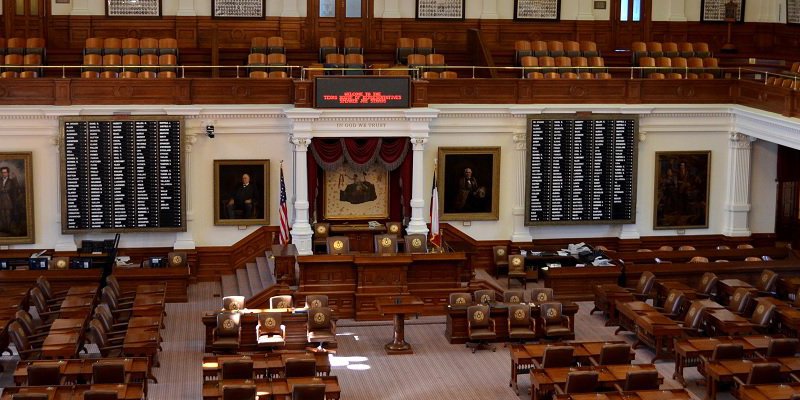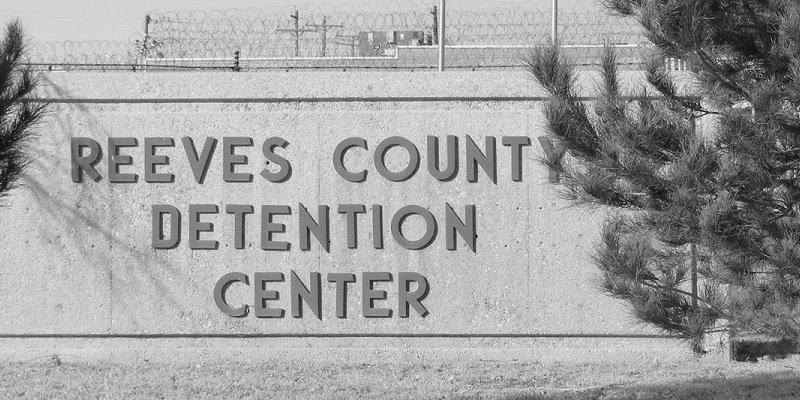-

For Texas, the new year will bring stronger contract transparency
In January, amendments made under recent Texas legislation will go into effect, strengthening the Texas Public Information Act (PIA) and addressing court-created obstacles to accessing contractor information within the state.
-

In Texas, Attorney General judgements on exceptions are the rule
Appeals are a critical tool for records requesters who want government agencies to cough up their secrets, but what if an agency puts up its defense before you even know you’re in a disclosure fight?
-

Homeland Security IG can’t compel safer immigration detention facilities fast enough
MuckRock wants to learn more about the operations of these immigration detention facilities, private and public. If you’re a group local to a facility and want to help our effort, let us know.
-

This week’s FOIA round-up: DEA database points to companies’ roles in opioid epidemic and Interior emails reveal violations of federal ethics rules
In this week’s FOIA round-up, the Washington Post and HD Media gain access to a database that tracks opioid distribution, emails obtained through a FOIA request reveal the extent of a top Department of the Interior official’s violations of federal ethics rules, and city and court records reveal that in one Alaska town every single police officer has been convicted of domestic violence.
-

This week’s FOIA round-up: Judge rules that Trump’s transition team emails are not subject to release under FOIA, and ICE’s internal documents show tactics, arrest quotas
In this week’s FOIA round-up, a federal judge ruled that Trump transition team emails are not subject to release, documents reveal years of Immigration and Customs Enforcement raid tactics, and a recently released report showed federal agents feared riots by migrants who were being held in overcrowded and unsanitary cells. Meanwhile, in Montana, the state supreme court ruled that a university player’s privacy rights as a student outweigh the public’s right to know.
And belated happy birthday to FOIA, signed 53 years ago this week by President Lyndon Johnson in 1966.
-

As local legislators debate facial recognition, some agencies restrict it with their own policies first
Last month, San Francisco became the first municipality in the country to ban the use of facial recognition by city departments. Later today, Somerville, Massachusetts may join its ranks. Agencies in other cities, however, aren’t waiting for city councils to weigh in, implementing policies that bar the use of facial recognition. Though the agency-level limits are not subject to the public development and enforcement that support city or state-level rules, they can be important measures in an agency’s own relationship with residents.
-

The 86th Texas Legislative session brings big changes to state’s public records law
The 86th Texas Legislative session ended on May 27th, and just last week, Governor Greg Abbot finished signing bills into law. According to the Freedom of Information Foundation of Texas, 193 of those bills discussed were related to public records - three of which deserve particular attention.
-

This week’s FOIA round-up: Using FBI records to uncover hate crime history, medical marijuana takes a hit as cannabis becomes more legalized, and The New York Times calls for police transparency
In this week’s FOIA round-up, a photographer used Federal Bureau of Investigation records to track down the location where a man was murdered 50 years ago for a photo project on the white power movemnt, medical marijuana registry data shows a decline in the rate of medical marijuana patients, and the New York Times Editorial Board calls for a repeal of law that keeps police misconduct records secret.
-

State public records laws continues to face challenges amidst big victories
The state of state public records laws continues to evolve as lawmakers discuss new legislation, court rulings clarify ambiguities in records law, and advocates press for better access. To get a sense of what’s happening, we’ve compiled a list of recent changes to access all across the country. If we missed news in your state, let us know by filling out the form below!
-

Bureau of Prisons announces over $1 billion in contracts for Texas private prison
The Bureau of Prisons has announced four awards related to its operations at the Reeves County Detention Complex in Texas. In total, the agreements are worth more than $1.3 billion over the life of the contracts, which could remain active for up to ten years.